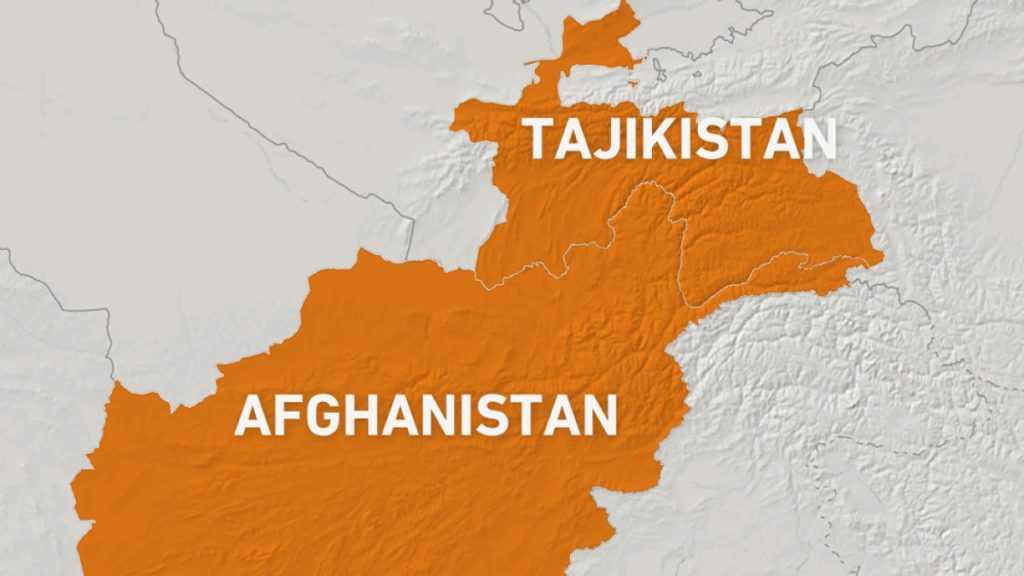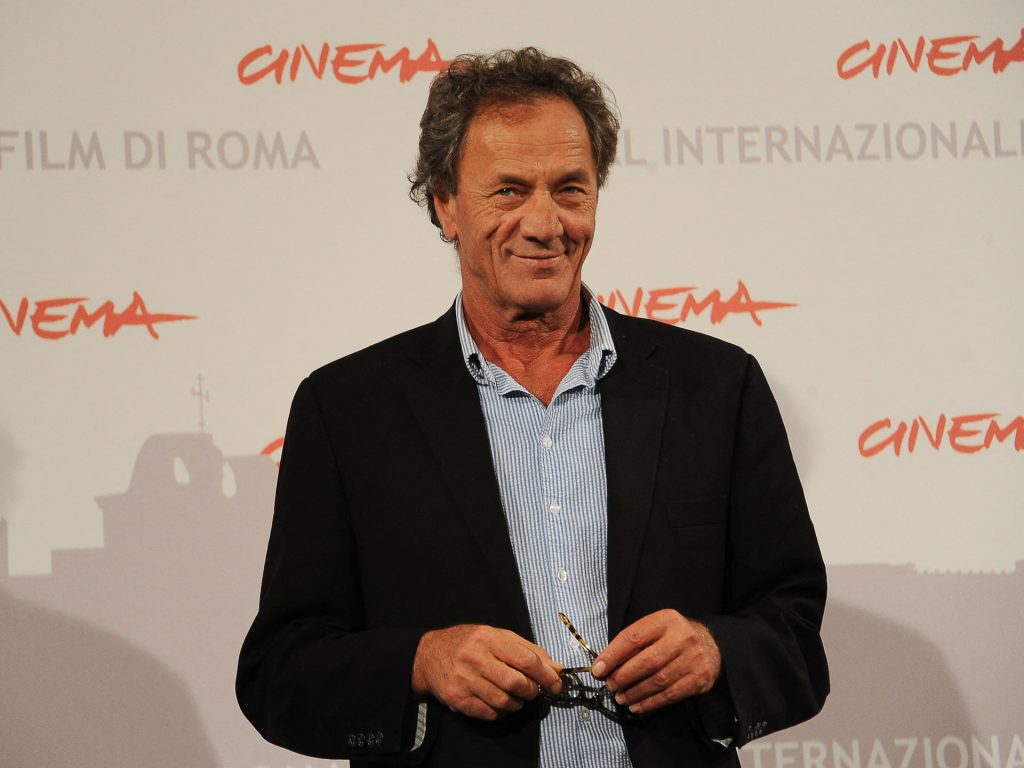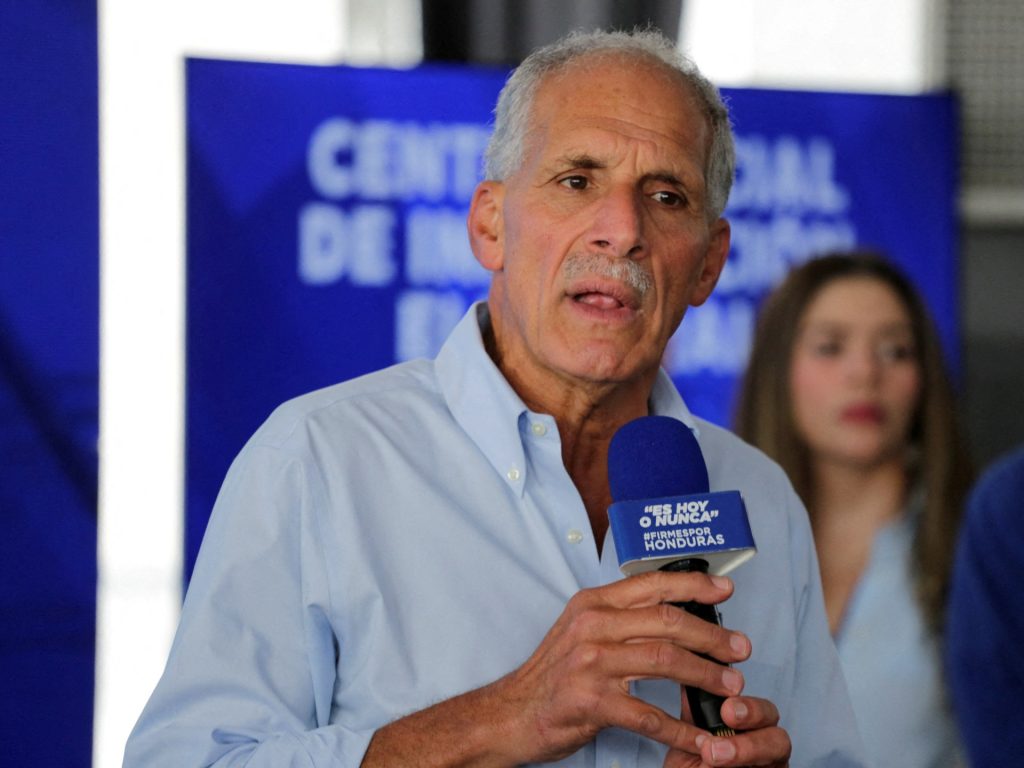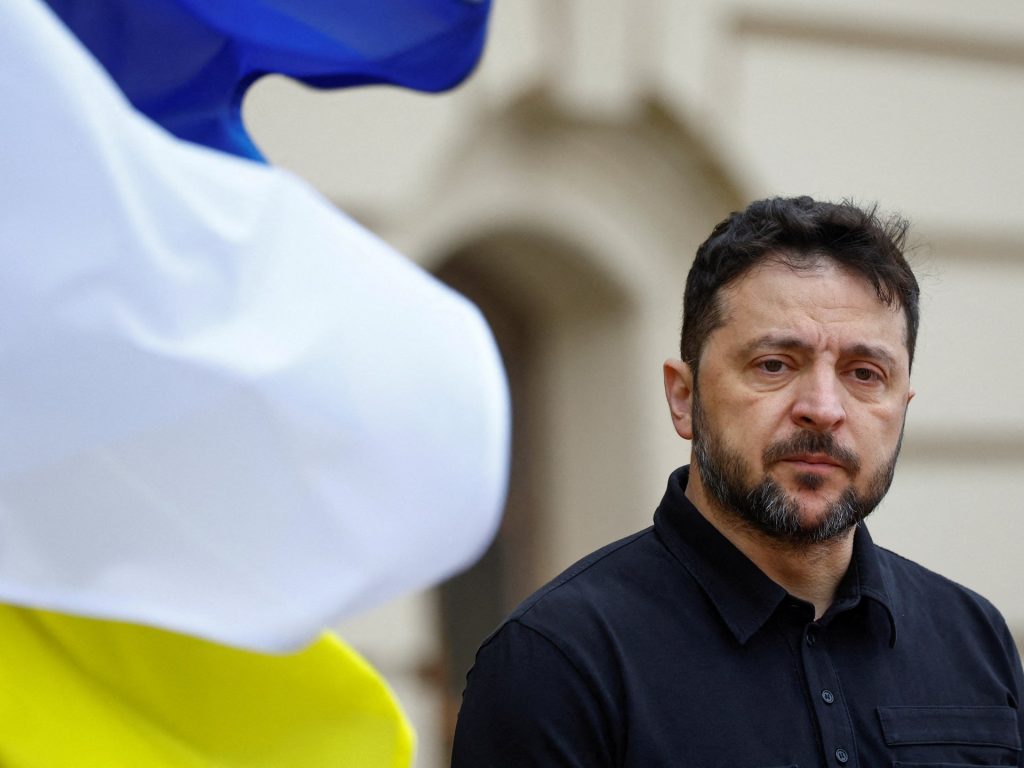Palestine Action: Prison hunger strikes that shaped history

Four members of the advocacy group Palestine Action have pledged this week to continue their hunger strike amid grave medical warnings and the hospitalisations of their fellow protesters. The group’s members are being held in five prisons in the United Kingdom over alleged involvement in break-ins at a facility of the UK’s subsidiary of the Israeli defence firm Elbit Systems in Bristol and a Royal Air Force base in Oxfordshire. They are protesting for better conditions in prison, rights to a fair trial, and for the UK to change a July policy listing the movement as a “terror” group. Recommended Stories list of 4 itemsend of list Palestine Action denies charges of “violent disorder” and others against the eight detainees. Relatives and loved ones told Al Jazeera of the members’ deteriorating health amid the hunger strikes, which have led to repeated hospital admissions. Lawyers representing the detainees have revealed plans to sue the government. The case has brought international attention to the UK’s treatment of groups standing in solidarity with Palestinians amid Israel’s genocidal war in Gaza. Thousands of people have rallied in support of Palestine Action every week. Hunger strikes have been used throughout history as an extreme, non-violent way of seeking justice. Their effectiveness often lies in the moral weight they place upon those in power. Historical records trace hunger strikes back to ancient India and Ireland, where people would fast at the doorstep of an offender to publicly shame them. However, they have also proved powerful as political statements in the present day. Advertisement Here are some of the most famous hunger strikes in recent world history: A pigeon flies past a mural supporting the Irish Republican Army in the Ardoyne area of north Belfast, September 9, 2015 [Cathal McNaughton/Reuters] Irish Republican Movement hunger strikes Some of the most significant hunger strikes in the 20th century occurred during the Irish revolutionary period, or the Troubles. The first wave was the 1920 Cork hunger strike, during the Irish War of Independence. Some 65 people suspected of being Republicans had been held without proper trial proceedings at the Cork County Gaol. They began a hunger strike, demanding their release and asking to be treated as political prisoners rather than criminals. They were joined by Terence MacSwiney, the lord mayor of Cork, whose profile brought significant international attention to the independence cause. The British government attempted to break up the movement by transferring the prisoners to other locations, but their fasts continued. At least three prisoners died, including MacSwiney, after 74 days. Later on, towards the end of the conflict and the signing of the Good Friday Agreement, imprisoned Irish Republicans protested against their internment and the withdrawal of political prisoner status that stripped them of certain rights: the right to wear civilian clothes, or to not be forced into labour. They began the “dirty protest” in 1980, refusing to have a bath and covering walls in excrement. In 1981, scores of people refused to eat. The most prominent among them was Bobby Sands, an IRA member who was elected as a representative to the British Parliament while he was still in jail. Sands eventually starved to death, along with nine others, during that period, leading to widespread criticism of the Margaret Thatcher administration. India’s Mohandas Karamchand Gandhi, who was later popularly known as Mahatma Gandhi, used hunger strikes as a tool of protest against the British colonial rulers several times. His fasts, referred to as Satyagraha, meaning holding on to truth in Hindi, were considered by the politician and activist not only as a political act but also a spiritual one. Gandhi’s strikes sometimes lasted for days or weeks, during which he largely sipped water, sometimes with some lime juice. They achieved mixed results – sometimes, the British policy changed, but at other times, there were no improvements. Gandhi, however, philosophised in his many writings that the act was not a coercive one for him, but rather an attempt at personal atonement and to educate the public. Advertisement One of Gandhi’s most significant hunger strikes was in February 1943, after British authorities placed him under house arrest in Pune for starting the Quit India Movement back in August 1942. Gandhi protested against the mass arrests of Congress leaders and demanded the release of prisoners by refusing food for 21 days. It intensified public support for independence and prompted unrest around the country, as workers stayed away from work and people poured out into the streets in protest. Another popular figure who used hunger strikes to protest against British rule in colonial India was Jatindra Nath Das, better known as Jatin Das. A member of the Hindustan Socialist Republican Association, Das refused food while in detention for 63 days starting from August 1929, in protest against the poor treatment of political prisoners. He died at the age of 24, and his funeral attracted more than 500,000 mourners. Palestinian kids wave their national flag and hold posters showing Khader Adnan following his death on May 2, 2023 [Majdi Mohammed/AP Photo] Palestinian prisoners in Israeli prisons Palestinians held, often without trial, in Israeli jails have long used hunger strikes as a form of protest. One of the most well-known figures is Khader Adnan, whose shocking death in May 2023 after an 86-day hunger strike drew global attention to the appalling treatment of Palestinians by the Israeli government. Adnan, who was 45 when he starved to death at the Ayalon Prison, leaving behind nine children, had repeatedly been targeted by Israeli authorities since the early 2000s. The baker from the occupied West Bank had once been part of the Palestinian Islamic Jihad group as a spokesperson, although his wife later stated publicly that he had left the group and that he had never been involved in armed operations. However, Adnan was arrested and held without trial multiple times, with some estimates stating that he spent a cumulative eight years in Israeli prisons. Adnan would often go on hunger strike during those detentions,
Five people killed in firefight on Tajik-Afghan border, Tajikistan says

The incident is the third of its kind in recent weeks in which Tajik border guards and civilians have been killed. By News Agencies Published On 25 Dec 202525 Dec 2025 Click here to share on social media share2 Share Five people have been killed in a firefight between border guards and intruders on Tajikistan‘s border with Afghanistan, the Tajik border protection agency says. Heavily armed raiders from Afghanistan crossed into Tajikistan at the village of Kavo in the Shamsiddin Shokhin district on Tuesday and were located on Wednesday, according to a statement by the border agency published by Tajik news agency Khovar. Recommended Stories list of 3 itemsend of list The border agency said the men attacked a guard post, killing two border guards, and three of the intruders died in the ensuing gun battle. The agency said the incident was the third of its kind in recent weeks in which Tajik border guards and civilians were killed. The border guards secured the weapons and ammunition used by the intruders, including grenades, three M-16 rifles, a Kalashnikov assault rifle, three foreign-made pistols with silencers, 10 hand grenades, a night-vision scope, explosives and other ammunition at the scene, the agency said. “The terrorists refused to obey orders from Tajik border guards to surrender and offered armed resistance. They intended to carry out an armed attack on one of the border posts of the Border Troops of the State Committee for National Security of the Republic of Tajikistan,” the statement said. Chinese citizens working for a mining company in the region have also been among those killed. The latest incident demonstrated “the Taliban government’s failure to fulfil their international obligations and repeated commitments to ensuring security and stability along the state border with the Republic of Tajikistan and to combating members of terrorist organisations, reflecting serious and recurring irresponsibility”, the statement added. Advertisement It agency said that it expected an apology from the Afghan leadership. Tajikistan will defend its territorial integrity against “terrorists and smugglers” by all means, it added. Afghanistan has not yet commented on the incident. Drugs from Afghanistan are smuggled into Central Asia across the largely unsecured 1,340km (830-mile) border. Russian forces are stationed in Tajikistan and have in the past participated in joint exercises with Tajik forces to help secure the border. Adblock test (Why?)
Palestinian actor and filmmaker Mohammad Bakri dies at 72

Celebrated director of ‘Jenin, Jenin’ documentary leaves behind legacy of artistic resistance. Published On 25 Dec 202525 Dec 2025 Click here to share on social media share2 Share Acclaimed Palestinian actor and filmmaker Mohammad Bakri has died in northern Israel, ending a five-decade career that established him as one of the most influential voices in Palestinian cinema. Bakri died on Wednesday at Galilee Medical Centre in Nahariya after suffering from heart and lung problems, hospital officials said. Recommended Stories list of 2 itemsend of list His passing removes a towering figure whose work directly challenged Israeli narratives and whose decades-long legal battles over censorship became a defining chapter in Palestinian cultural resistance. The 72-year-old was best known for his 2002 documentary, Jenin, Jenin, which captured testimonies from Palestinian residents following a devastating Israeli military operation in the refugee camp that killed 52 Palestinians. The film ignited years of controversy in Israel but elevated Bakri’s status as a creative and would overshadow the remainder of his life. Israeli authorities banned the documentary from screening in 2021, with the Supreme Court upholding the prohibition in 2022, deeming it defamatory. “I intend to appeal the verdict because it is unfair, it is neutering my truth,” Bakri told the Walla News website at the time. Five soldiers sued Bakri, and courts eventually fined him hundreds of thousands of shekels while ordering all copies seized and online links removed. In an interview with the British Film Institute earlier this year, Bakri said, “I don’t see Israel as my enemy … but they consider me their enemy. They see me as a traitor … for making a movie.” Advertisement Born in 1953 in the Galilee village of Bi’ina, Bakri was a Palestinian citizen of Israel who studied Arabic literature and theatre at Tel Aviv University. He made his striking film debut at age 30 in Costa-Gavras’s Hanna K, playing a Palestinian refugee attempting to reclaim his family’s home. His role as a Palestinian prisoner in the 1984 Israeli film Beyond the Walls earned international acclaim and an Academy Award nomination for the production. But it was Bakri’s commitment to telling Palestinian stories that defined his career. He appeared in more than 40 films and directed several documentaries examining the experiences of Palestinians living under occupation and within Israel. His solo theatrical performance of The Pessoptimist, based on Emile Habibi’s novel about Palestinian identity, was performed more than 1,500 times worldwide and cemented his status as a cultural icon. Bakri is survived by his wife Leila and six children, including actors Saleh, Ziad and Adam, who have followed him into cinema. His funeral was held the same day in Bi’ina. Adblock test (Why?)
Syria says key ISIL leader Taha al-Zoubi captured near Damascus

Syrian officials confirm the arrest of ISIL leader Taha al-Zoubi in a security operation near Damascus. Published On 24 Dec 202524 Dec 2025 Click here to share on social media share2 Share Syria’s Ministry of Interior has announced the arrest of Taha al-Zoubi, a leading figure in the ISIL (ISIS) group, in the Damascus countryside, the country’s SANA news agency reported. The report said a “tightly executed security operation” was carried out that led to the arrest of al-Zoubi, adding that “a suicide belt and a military weapon were seized in his possession”. SANA quoted Brigadier General Ahmad al-Dalati, head of internal security in the Damascus countryside, as saying the raid targeted an ISIL hideout in Maadamiya, southwest of Damascus, and was carried out “in cooperation” with an anti-ISIL alliance that includes the United States-led coalition fighting the group. The US Central Command (CENTCOM) has not publicly confirmed the operation. Al-Dalati said al-Zoubi, also known as Abu Omar Tibiya, served as the group’s “wali”,or governor, of Damascus and that several alleged aides were also detained. The official added that the arrest dealt a “crippling blow” to ISIL networks in the capital region and showed the “readiness of the security apparatus”. “We send a clear message to anyone who dares to engage in the project of terrorism or lend support to ISIS: The hand of justice will reach them wherever they are,” al-Dalati said. ISIL, which views the new government in Damascus as illegitimate, has mainly concentrated its activities against Kurdish forces in the north. At its peak, ISIL ruled an area half the size of the United Kingdom, spanning across Iraq and Syria, with Raqqa in the latter being the capital of the armed group’s self-declared “caliphate”. Advertisement The group was notorious for its brutality, carrying out massacres of Syrians and Iraqis and beheadings of foreign captives. ISIL was defeated in Iraq in 2017 and in Syria two years later, but its fighters and cadres of armed group members still carry out deadly attacks in both countries and elsewhere, including in Africa and Afghanistan. Adblock test (Why?)
Explosion rocks crowded mosque in Nigeria, killing several people: Reports

The blast tore through a mosque in Maiduguri as worshippers gathered for evening prayers, witnesses say. By News Agencies Published On 24 Dec 202524 Dec 2025 Click here to share on social media share2 Share An explosion has ripped through a mosque in northeastern Nigeria as worshippers gathered for their evening prayers, killing and wounding several people, according to media reports. The blast took place at about 6pm on Wednesday (17:00 GMT) in the city of Maiduguri in Borno State, the Reuters and AFP news agencies reported, citing witnesses. Recommended Stories list of 3 itemsend of list Police spokesman Nahum Daso confirmed the explosion and told AFP that an explosive ordnance team was already on site at the mosque in Maiduguri’s Gamboru market. There was no official word on casualties. But mosque leader Malam Abuna Yusuf told the AFP at least eight people had died, while a militia leader, Babakura Kolo, put the figure at seven. Another witness, Musa Yusha’u, told AFP that he saw “many victims being taken away for medical treatment”. The cause of the blast was not immediately known, but it occurred in a city that has been at the heart of an armed rebellion waged by Boko Haram and ISIL’s (ISIS) offshoot in the region, the Islamic State West Africa Province, for nearly two decades. The conflict has killed at least 40,000 people and displaced about two million from their homes since 2009, according to the United Nations. Though the violence has waned since its peak about a decade ago, it has spilt into neighbouring Niger, Chad and Cameroon. Concerns are also growing about a resurgence of violence in parts of the northeast, where armed groups remain capable of mounting deadly attacks despite years of sustained military operations. Advertisement Maiduguri itself – once the scene of nightly gun battles and bombings – has been calm in recent years, with the last major attack recorded in 2021. Adblock test (Why?)
Trump-backed conservative Nasry Asfura wins Honduras election: Authorities

Asfura says he is ready to govern after narrow vote as the US urges ‘all parties to respect the confirmed results’. Nasry Asfura, a conservative candidate backed by United States President Donald Trump, has won the closely contested presidential elections in Honduras, the country’s election council has said. The final results, announced on Wednesday – more than 20 days after the vote took place – are likely to lead to challenges in the Central American nation. Recommended Stories list of 3 itemsend of list According to the electoral authority, known as the CNE, Asfura won 40.3 percent of the vote, edging out centre-right Liberal Party candidate Salvador Nasralla, who received 39.5 percent. In a brief social media post, Asfura thanked the CNE on Wednesday. “Honduras: I am prepared to govern. I will not fail you,” he wrote. Trump had come out strongly in support of Asfura, attacking Nasralla and left-wing candidate Rixi Moncada, who ended up garnering less than 20 percent of the votes. US Secretary of State Marco Rubio was quick to congratulate Asfura on Wednesday, saying that Washington looks forward to working with him. “The people of Honduras have spoken: Nasry Asfura is Honduras’ next president,” Rubio wrote in a social media post. In a separate statement, Rubio urged “all parties to respect the confirmed results” of the elections. Earlier this month, Trump pardoned former Honduran President Juan Orlando Hernandez – a member of Asfura’s National Party – who was serving a lengthy prison sentence in the US for drug trafficking. Asfura, the former mayor of Honduras’s capital, Tegucigalpa, is of Palestinian descent. But his National Party is staunchly pro-Israel. Advertisement Israeli Foreign Minister Gideon Saar said on Wednesday that he spoke to Asfura and the officials agreed to “strengthen bilateral relations” between the two countries. “I conveyed our warm wishes to the people of Honduras, wished him success in his role, and invited him to visit Israel,” Saar said in a statement. “Honduras has a long history of friendship with the State of Israel and the Jewish people.” Under Hernandez in 2021, Honduras became only the fourth country to move its embassy in Israel to Jerusalem in breach of international law. Asfura has also aligned himself with Trump and other right-wing leaders in the Americas, including Argentina’s Javier Milei. The Argentinian president hailed Honduras’s election results on Wednesday, calling it a victory against “narcosocialism”, although the National Party’s Hernandez is a convicted drug trafficker. “The Honduran people expressed themselves with courage at the ballot boxes and chose to end years of authoritarianism and decay,” Milei wrote in a social media post. “From Argentina, we celebrate the triumph of freedom and reaffirm our commitment to democracy, the popular will, and the unrestricted respect for institutions in the region.” Asfura’s victory marks another win for right-wing candidates in Latin America over the past year. Chile and Bolivia have also elected ultraconservative presidents in 2025, and last year, El Salvador’s right-wing leader Nayib Bukele comfortably won re-election. The results appear to reverse the “Pink Tide” – the wave of left-wing leaders who rose to power in the region in the early 2020s. The rise of right-wing governments in the region coincides with a US pressure campaign against Venezuela’s left-wing President Nicolas Maduro. Trump has imposed an oil blockade on Venezuela and amassed US troops and military assets near the country. Adblock test (Why?)
Video captures Libyan military chief’s fatal plane crash near Ankara

NewsFeed Video has emerged of the moment a plane, carrying Libya’s military chief, crashed outside Ankara. Mohammed al-Haddad was in Turkiye for high-level talks. He played a crucial role in the ongoing UN-backed effort to unify the country. Published On 24 Dec 202524 Dec 2025 Click here to share on social media share2 Share Adblock test (Why?)
Zelenskyy unveils details of new peace plan, seeks Trump talks on territory

Ukrainian President Volodymyr Zelenskyy has called for a meeting with United States counterpart Donald Trump to discuss “sensitive issues” as negotiators inched closer to a final draft of a peace plan, nearly four years after Russia’s full-scale invasion of Ukraine. Zelenskyy told reporters in an embargoed briefing on Tuesday that US and Ukrainian negotiators had reached a consensus on several points aimed at ending the war, but issues, including territorial control of Ukraine’s eastern industrial heartland, remained unresolved. Recommended Stories list of 3 itemsend of list “We are ready for a meeting with the United States at the leaders’ level to address sensitive issues. Matters such as territorial questions must be discussed at the leaders’ level,” said the Ukrainian leader in comments released by his office on Wednesday. Zelenskyy’s briefing followed marathon talks in the US state of Florida on the 20-point plan, as Russia reviewed the latest draft. The Kremlin said on Wednesday that Russian President Vladimir Putin had been briefed by envoy Kirill Dmitriev, and that Moscow was formulating a response. Donbas ‘most difficult point’ Kyiv has been pressing Washington to modify Trump’s peace plan, which had initially been criticised as a Kremlin wish list, including demands that Ukraine cede more territory, accept curbs on its forces and give up on joining the NATO military alliance. Zelenskyy said the latest 20-point framework draft was a considerable evolution on the earlier plan, with Ukraine keeping its army at its current strength of 800,000 at peacetime, and additional documents agreed with the US and European allies providing robust security guarantees. Advertisement But despite the progress, Ukraine and the US have still not found common ground on territorial issues, particularly on control of the eastern Donetsk and Luhansk regions, known as the Donbas. This is “the most difficult point”, Zelenskyy said. While Kyiv has proposed “to remain where we are”, halting fighting at the current battle lines, Moscow wants it to withdraw troops from all of the eastern Donetsk region. Ukraine still controls about a quarter of the region and has rejected demands to give it up. With the Kremlin unlikely to abandon its maximalist territorial demands, the US has proposed a compromise arrangement that would transform disputed areas into free economic zones. Ukraine insists that any arrangement must be contingent upon a referendum. Additionally, there is still no agreement on the fate of the Zaporizhzhia nuclear power plant, Zelenskyy said. Europe’s largest nuclear power plant is located in territory under Russian military control near the front line. The president said Kyiv was proposing a small economic zone there. “We are saying: If all regions are included and if we remain where we are, then we will reach an agreement,” Zelenskyy said. “But if we do not agree to remain where we are, there are two options: Either the war continues, or something will have to be decided regarding all potential economic zones.” The document also proposes the withdrawal of Russian forces from the regions of Dnipropetrovsk, Mykolaiv, Sumy and Kharkiv, and that international troops be stationed along the contact line to monitor the implementation of the agreement. “Since there is no faith in the Russians, and they have repeatedly broken their promises, today’s contact line is turning into a line of a de facto free economic zone, and international forces should be there to guarantee that no one will enter there under any guise,” Zelenskyy said. Reporting from Kyiv, Al Jazeera’s Audrey MacAlpine said the key question of territory appears to still be “on the table”, adding that “there has not been anything fleshed out when it comes to exactly how to answer that question.” She said: “What it offers is a bit more colour in the form of sub-clauses of how peace might be achieved. “They propose things, for example, like a … monitoring system of the front line. If we look back to the Minsk agreements around 2015, there were issues about how to monitor ceasefire infractions between Russia and Ukraine, so this has historically been an issue of contention. Advertisement “He [Zelenskyy] has also said that there are some things that we are probably not ready for, meaning Ukraine, and [he is] sure there are things that Russians are not ready for either, suggesting that both sides may need to make some concessions on these key issues.” EU membership, reconstruction funds The draft also ensures that Ukraine will be provided with “strong” security guarantees that mirror NATO’s Article 5, which would obligate Ukraine’s partners to act in the event of renewed Russian assault. Zelenskyy said a separate bilateral document with the US will outline these guarantees. This agreement will detail the conditions under which security will be provided and will establish a mechanism to monitor the ceasefire. The mechanism will use satellite technology and early warning systems to ensure effective oversight and rapid response capabilities. “The mood of the United States of America is that this is an unprecedented step towards Ukraine on their part. They believe that they are giving strong security guarantees,” he said. The draft contains other elements, including Ukraine becoming a European Union member at a specifically defined date, holding elections after the signing of the agreement and accelerating a free trade deal with the US. Also included are funds for reconstruction and economic investment. “Ukraine will have the opportunity to determine the priorities for distributing its share of funds in the territories under the control of Ukraine. And this is a very important point, on which we spent a lot of time,” Zelenskyy said. Adblock test (Why?)
Stokes concerned for England’s mental wellbeing on Ashes tour of Australia

Captain Ben Stokes said protecting England players’ welfare was his top concern amid claims of excessive drinking on a mid-Ashes beach break, without directly addressing the allegations. Stokes was peppered with questions on Wednesday ahead of the Boxing Day Test in Melbourne about the team’s behaviour at Noosa between the second and third Tests after British media reports compared it with a “stag-do”. Recommended Stories list of 4 itemsend of list Unverified social media footage appeared to show opener Ben Duckett drunk and disoriented. Their disastrous five-Test tour, which has seen Australia take an unassailable 3-0 lead, took another hit on Wednesday when pace spearhead Jofra Archer was ruled out of the rest of the series with a side strain. England cricket chief Rob Key on Tuesday pledged to investigate the drinking claims, while the England and Wales Cricket Board said in a statement it was intent on establishing the facts. Stokes, whose team have already lost the Ashes, said his main concern was the players’ mental welfare and to ensure they were ready for the Melbourne Test starting Friday. “I’m obviously aware of the reports and everything circulating around right now,” Stokes said. “My main concern is my players, and how I handle this moment is the most important thing to me. “The welfare of everyone in there, and probably some certain individuals as well, is the most important thing to me right now as England captain. “It’s never a nice place to be in when not only the media world, but also the social media world, is piling on top of you,” he added. Advertisement “It’s a very tough place to be in as an individual. As an individual, when you know you’ve got the support of the people who are sort of leaders, in a sense, it’s very good to know that you’ve got that support.” Asked directly whether his teammates had “done anything wrong in Noosa”, Stokes replied: “I’ve just answered everything there.” Stokes calls for focus as spotlight increases on England England went to Queensland tourist resort Noosa after losing the first two Tests in Perth and Brisbane heavily. They spent several days on the sand and around restaurants and bars before travelling to Adelaide, where they lost the third Test as Australia retained the Ashes. Britain’s Daily Telegraph reported that “after drowning their sorrows after the Brisbane Test, it is no exaggeration to say some, certainly not all, players drank for five or six days”. It added that players “did nothing outrageous in Noosa” but there was concern over the level of drinking, with England’s professionalism already under the microscope after their limited preparations. England captain Ben Stokes, right, and coach Brendon McCullum are both under pressure following the side’s failures in Australia [Gareth Copley/Getty Images] Stokes conceded that when a side was losing, there would be scrutiny, and “rightly so”. “When you are 3-0 down you don’t really have a leg to stand on but we’ve got two games of cricket to play. That’s what we have to focus on,” he said. “We haven’t won a game in Australia for a long, long time.” England have gone 18 Tests since winning a match in Australia, dating back to their last series victory there in 2010-11. Their capitulation in this series in 11 days of play is the joint second quickest in more than a century, since the 1921 Ashes was completed in eight days. Making matters worse, Archer will take no further part in the tour, with Gus Atkinson replacing him in Melbourne. The under-performing Ollie Pope paid for his poor form at number three, with Jacob Bethell taking over in the only other change. England’s Test woes in contrast to Australia’s Ashes high Bowling with the wicketkeeper standing up to the stumps can bruise a fast bowler’s ego, but Australia paceman Scott Boland said Alex Carey’s stellar glovework in the ongoing Ashes series has helped him grow comfortable with it. Carey’s wicketkeeping masterclass has been a key factor in Australia’s unassailable lead in the five-match series, and the 34-year-old was particularly impressive in the second Test at the Gabba, where he stood up to Boland and Michael Neser. Advertisement With the wicketkeeper breathing down their necks, English batters were pretty much confined to the crease, which meant the home bowlers did not really need to vary their length. “I’ve just never really bowled to the keeper up to the stumps before,” Boland told reporters ahead of the fourth Test. “Everyone wants to be a fast bowler, and you don’t really like the keeper up to the stumps. “But I’ve seen over the last month how effective it is and how still I can keep their batters by Alex being up to the stumps.” Wicketkeepers typically stand farther back from the stumps when facing fast bowlers to give themselves more time to react to the high speed and bounce of the ball, reducing the risk of missed catches. Even from close range, Carey showed tremendous reflexes to pouch a thick edge from Ben Stokes after the England captain had nicked a Neser delivery in the second innings. Dismissals like that gave confidence to Boland that he could continue bowling his edge-inducing length balls regardless of where Carey stood. “I just need to trust that the length balls I bowl to try and nick guys off is the same length I bowl when he’s up to the stumps or back,” the 36-year-old said. “The Gabba was pretty bouncy and he was up to the stumps for a bit of it and catching balls above waist-high and I bowled a bouncer and he caught that, so I have full trust in him up there.” Former Australia wicketkeeper Ian Healy called Carey “clearly the best in the world”, while teammate Steve Smith termed him a “freak”. Adblock test (Why?)
Venezuela passes law enacting harsh penalties for supporters of US blockade

Government of President Nicolas Maduro denounces US seizure of oil tankers as illegal acts of piracy. By News Agencies Published On 23 Dec 202523 Dec 2025 Click here to share on social media share2 Share Venezuela’s National Assembly has passed a law enacting harsh penalties for those who support or help finance blockades and acts of piracy, including up to 20 years in prison. The legislation was passed on Tuesday after the United States seized oil tankers linked to Venezuela, acts that the government of President Nicolas Maduro has denounced as lawless acts of piracy. Recommended Stories list of 3 itemsend of list “This law seeks to protect the national economy and avoid the erosion of living standards for the population,” Giuseppe Alessandrello said while presenting the law before the National Assembly, which is controlled by Maduro’s ruling party. The US has carried out a series of increasingly aggressive measures over the past several months, deploying sizeable military forces to Latin America, seizing oil tankers, killing dozens of people in military strikes on what it says are drug-trafficking boats and threatening land strikes on Venezuela itself. The legality of some of those acts, such as the seizures of oil tankers in international waters, is contested. Others, such as the strikes against alleged drug traffickers, are widely considered illegal. “We are in the presence of a power that acts outside of international law, demanding that Venezuelans vacate our country and hand it over,” Samuel Moncada, Venezuela’s representative at the United Nations, told the UN Security Council during a meeting on Tuesday. “The threat is not Venezuela,” he added. “The threat is the US government.” China and Russia also criticised US actions, with Russian Ambassador Vassily Nebenzia saying that the Trump administration was creating a “template” for the use of force that could be used against other Latin American countries in the future. Advertisement The Wall Street Journal reported on Tuesday that the US military had moved special operations aircraft and cargo planes with troops into the Caribbean this week. “We have a massive armada formed, the biggest we’ve ever had and by far the biggest we’ve ever had in South America,” Trump told reporters on Monday. Maduro has said the US is seeking to topple his government and seize control of Venezuela’s large oil reserves, which members of the Trump administration have falsely claimed rightfully belong to the US. Trump said on Monday that the US would retain the oil seized from the tankers as well as the tankers themselves. Addressing the UN Security Council, US ambassador Mike Waltz said that oil sales were a “primary economic lifeline for Maduro and his illegitimate regime”, repeating the largely unfounded claim that Maduro oversees a vast criminal enterprise that traffics drugs to the US. “The single most serious threat to this hemisphere, our very own neighbourhood and the United States, is from transnational terrorist and criminal groups,” Waltz said. The US pressure campaign has become a useful pretext for the Venezuelan government’s efforts to crack down on internal dissent. Rights groups said the Maduro government has become more repressive since a presidential election in July 2024, in which Maduro claimed victory despite widespread doubts about the credibility of the results. The opposition has maintained it was the true winner, and few countries have recognised Maduro’s victory. Adblock test (Why?)

